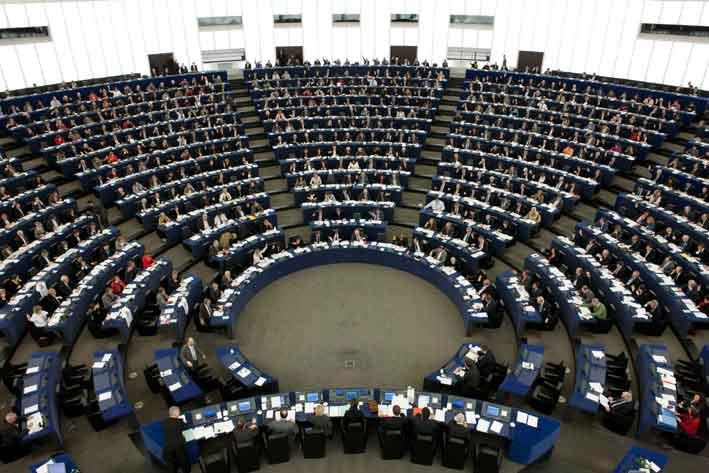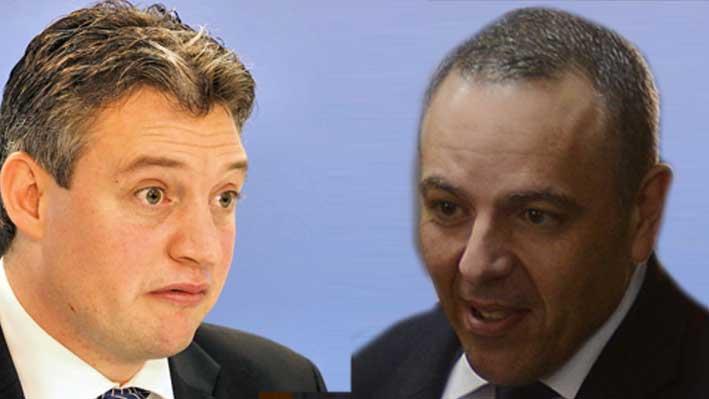PL MEP and former Prime Minister Alfred Sant believes that tax competition in the EU could very realistically be put in jeopardy.
The former prime minister was speaking during an interview with The Malta Independent. “There are Commission papers on this. EU Finance Commissioner Pierre Moscovici is for regulating tax competition, having a minimum effective tax rate across the board. The problem will be that the countries against it will be lobbied against by the big guys.”
A number of MEPs have been referring to Malta as a tax haven, and have been assaulting Malta’s tax systems as of late. While Malta’s tax system has always raised some eyebrows in the EU, the Malta files as well as other incidents, like the Panama Papers, have resulted in some MEPs using these situations to promote the idea of tax harmonisation, arguing that systems like Malta’s as well as a few others are unfair.
“Tax harmonisation has caught on at the level of regulating tax competition, attacking tax havens on the other side of the coin and then coming up with some kind of minimum effective tax rate.”
Asked about the effect on foreign business in Malta, he said “It would be constraining. We live off of financial services. 20% of economic growth comes from the financial services sector. 15% comes from gaming. Tourism fuels around 20%.”

Turning to tax systems and small nations like Malta not having the natural resources bigger countries have, and whether he feels harmonising such systems could remove the one beneficial advantage smaller countries have he said “this is the argument we have been using. At the moment as far as EU competences are concerned, taxation of profits and income are outside EU competence, and tax harmonisation means it would have to become part of EU competence. Both sides of the spectrum in Malta are against that. When you are in a customs union with harmonised VAT, free movement of Labour, people and capital, and at the same time you don’t have the endowments other areas have then obviously there will be a problem as resources would go to the centre where there will be the endowments. So the only thing to balance other people’s endowments is some form of tax competition.”
Told that a number of MEPs are against Malta’s tax system, he said: “There are two lobbies in the EU, one of which is in favour of tax harmonisation, who do not like the idea of tax competition.” He explained that this applies especially to countries like France who have a high tax base, “and there are other reasons such as being able to better manage Eurozone problems through harmonised rates and a central system.”
“The second lobby is the anti-tax haven lobby. Both lobbies have members from across all EU Parliament political groups. Usually bigger countries are for tax harmonisation and against tax havens. The fight against tax havens is popular for all political creeds because of the austerity programmes which follow and so they present a good punching bag, in the sense that one argument being made is that they don’t have enough money to spend is because so many funds go through tax havens etc. and therefore austerity has become more onerous.”

“If the idea of tax harmonisation is catching on, how can Malta ensure that its tax regime remains intact?” he was asked.
“There are two problems with that. Firstly Malta’s imputation system is different to that of other countries. Secondly Germany and France are getting together. Spain would follow and Italy apparently also likes the idea. So we have the big four in harmonised sync about some form of action on taxation. The major player who would have been against, the UK, is out.”
He mentioned that transparency and due diligence needs to improve across the board in EU countries.
Asked whether he believes enforcement of directives with regards to finances, anti-money laundering etc are weak around the EU, he said “people claim enforcement is weak, and that it is weaker in smaller countries. It’s the easiest thing for them to say of course. I would say that rather than enforcement being weak, the biggest problem is transparency. We need to do much more here across the board, such as through the introduction of a beneficial owner register and improving due diligence. There is a problem with due diligence across the board in all countries.”

Told that a number of MEPs have said that Malta would not be so much the focal point if action was taken against OPM Chief of Staff Keith Schembri and Minister Konrad Mizzi, he said that Luxembourg didn’t have this problem and it is still “getting punched all the time.”
Asked what he makes of Konrad Mizzi being appointed as minister of this sector, he said: “it’s the Prime Minister’s choice, he is a good technocrat.”
Asked whether he should remain there now, given he was quite vocal about Mizzi in the past, he said: “I was not quite vocal I wrote a Facebook post once. I don’t have an opinion about that. I don’t have to judge everything that is happening in Malta.”
Turning to the banking sector and banks not lending to business as easily as they did prior to the financial crisis, he mentioned the banking union. “Part of the tooling of the banking unions is not to have banks too big to fail come back on the government. So there is a surveillance mechanism, a mechanism prepared - like the IMF - to bailout banks under certain conditions etc. Also capital requirements for banks are increasing. That is what has had a negative feedback in Malta as well as our banks have had to capitalise up, which makes them more reluctant to stake out money, which affected small business. There are programmes in Malta which have been backed by EU funds which weren’t bad for Malta, so it’s a mixed bag.”
He mentioned that one problem banks across the Eurozone have are non-performing loans, and tackling that is a problem. In Malta there is a certain amount but it’s not too frightening. The other problems is what I hear regulators say - that banks have too much in one basket. What the Eurozone is trying to discuss is would for instance having too many government bonds in the same government be a problem, which would be a problem for us as banks carry quite a lot of Malta government bonds.”